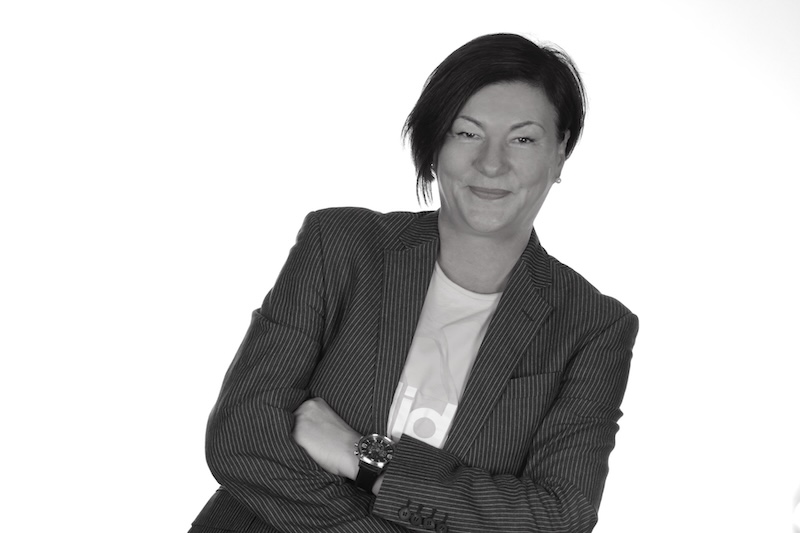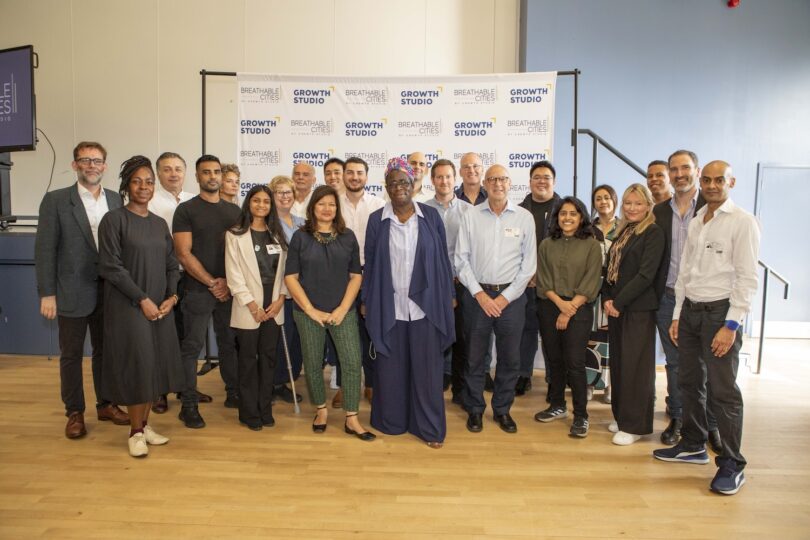Recently, air pollution entered the public consciousness and people are becoming alert to the damage it causes to health and society. Raising awareness required dedicated campaigners working hard to push the issue onto the front pages. One of these, Gabriele Jesson, gathered an impressive group of women with the aim of working together to ignite change. Here, Gabriele tells us about her Women in Air Quality leadership group and her passion for clean air.
What made you so passionate about air pollution?
To be honest, the impact of polluted air wasn’t really part of my understanding until I began working with Paul Finch and Rayan Jawad. They are co-founders of Growth Studio, who launched the Breathable Cities accelerator programme.
Now, 12 months later, I am committed to raising awareness about the devastating consequences of air pollution. If you begin to explore the facts, it’s a rabbit hole you can’t walk away from. The data is impossible to ignore – every year, air pollution causes over 36,000 deaths in the UK and millions worldwide.

Gabriele Jesson
I have worked with startups in sustainability for the past few years, as a growth marketing and PR advisor but also as a coach. It’s a refreshing change after 20 years implementing campaigns for global brands like Nike and Coca Cola. I now work closely with company founders and see the immediate results of my input.
My singular focus is to do whatever I can to help planet-friendly businesses thrive. Innovators tackling air pollution are challenged by multiple forces, including lack of visibility and specific funding because, for some odd reason, air pollution rarely figures in the current clamour for climate tech innovation by investors. There is inertia and a disconnected approach amongst leaders and government departments who could catapult change.
Air pollution is a silent and invisible assassin that affects every stage of life, from womb to old age. It contributes to some of the worst health outcomes, including stunted growth in children, cancer, lung disease, heart disease, mental health and cognitive issues, and dementia. Almost every day, new evidence emerges about the global health impacts.
I started speaking to family members and heard their own experiences about the air they breathed in polluted cities and the health impacts. My mum lived in busy cities throughout her childhood and 20s – and now suffers from respiratory difficulties that impact her quality of life.
So, if I can spend energy communicating these truths, bringing together innovation, investment and government, and helping clean air innovators create solutions, I can make a difference.
Why is urban air quality such a problem?
Urban air pollution affects the disadvantaged people least able to effect change or drive awareness. For people living in densely occupied environments close to busy roads, the air they breathe exacts devastating consequences. And, of course, it isn’t just outdoor air pollution from vehicular emissions or wood burning stoves. It’s indoor air pollution such as mould, lack of ventilated fresh air, dampness, and even toxic fumes from cleaning materials.
What is the Breathable Cities programme?
Breathable Cities designs accelerator programmes to create better investment outcomes for planet-friendly startups. Supported by Impact on Urban Health, the programme seeks diverse startups improving air quality in urban neighbourhoods.
It helps early-stage businesses implement clean air solutions with greater speed and increased success. Following the successful graduation of 11 UK startups last year, Growth Studio is building a bigger programme for 2024.
You set up the Women in Air Quality leadership group. Could you tell us about it?
It’s something I’m really excited about but couldn’t have done this without the support of Paul and Rayan – they helped shape the group from the idea stage.
We gradually realised the unusual number of female voices fighting air pollution, and not just in business and innovation. Our Breathable Cities founders and startup teams were 45% women, while academics, government teams, entrepreneurs, investors, and campaigns are overwhelmingly female. By marking this factual statistic and bringing the varied voices together, we could do something powerful and effective.
It’s hard to pinpoint exactly why so many women represent this sector. Of course, campaigners like Mums for Lungs and Rosamund Kissi Debrah are mothers with children deeply affected by poor air quality. Rosamund’s daughter, Ella, sadly died from an asthma attack related to air pollution.
I am presently setting goals for 2024 and hope that, after publishing this initial Women in Air Quality leadership list, we bring everyone together with some agreed objectives for real change. Ultimately, we are on a mission to eradicate air pollution: this is our unified rallying call.
Looking at the issue of cleaner air, solutions will benefit from combined perspectives including revealing truth to power, innovation, and changing policy. Perhaps, women lean in well when there is this intersection of needs. But honestly, I really don’t know – I am just glad there is such diversity!
Finally, I would love to highlight the 2023 Cohort of Breathable Cities startups. This inspiring group of people are now on a journey to make changes.







